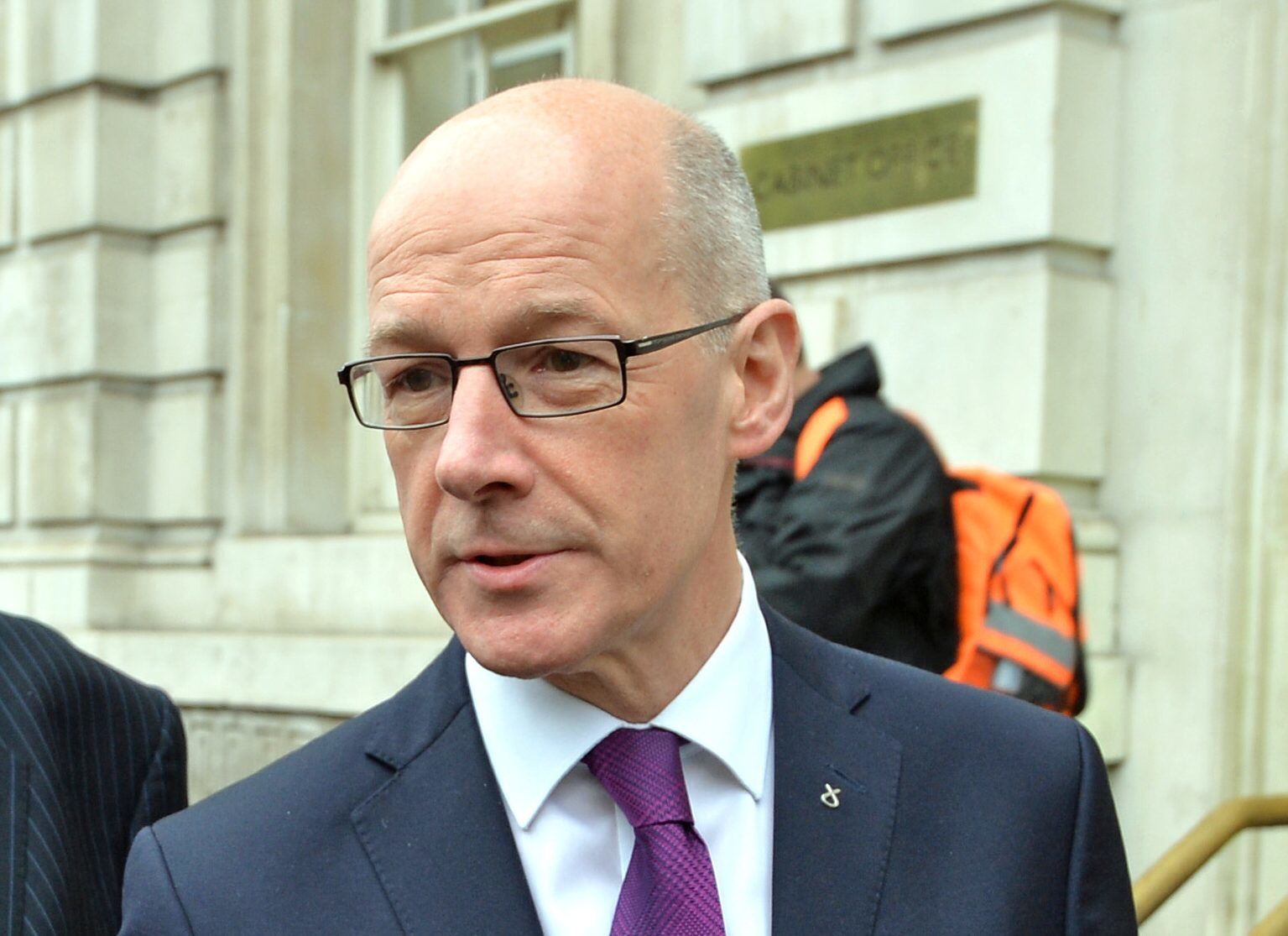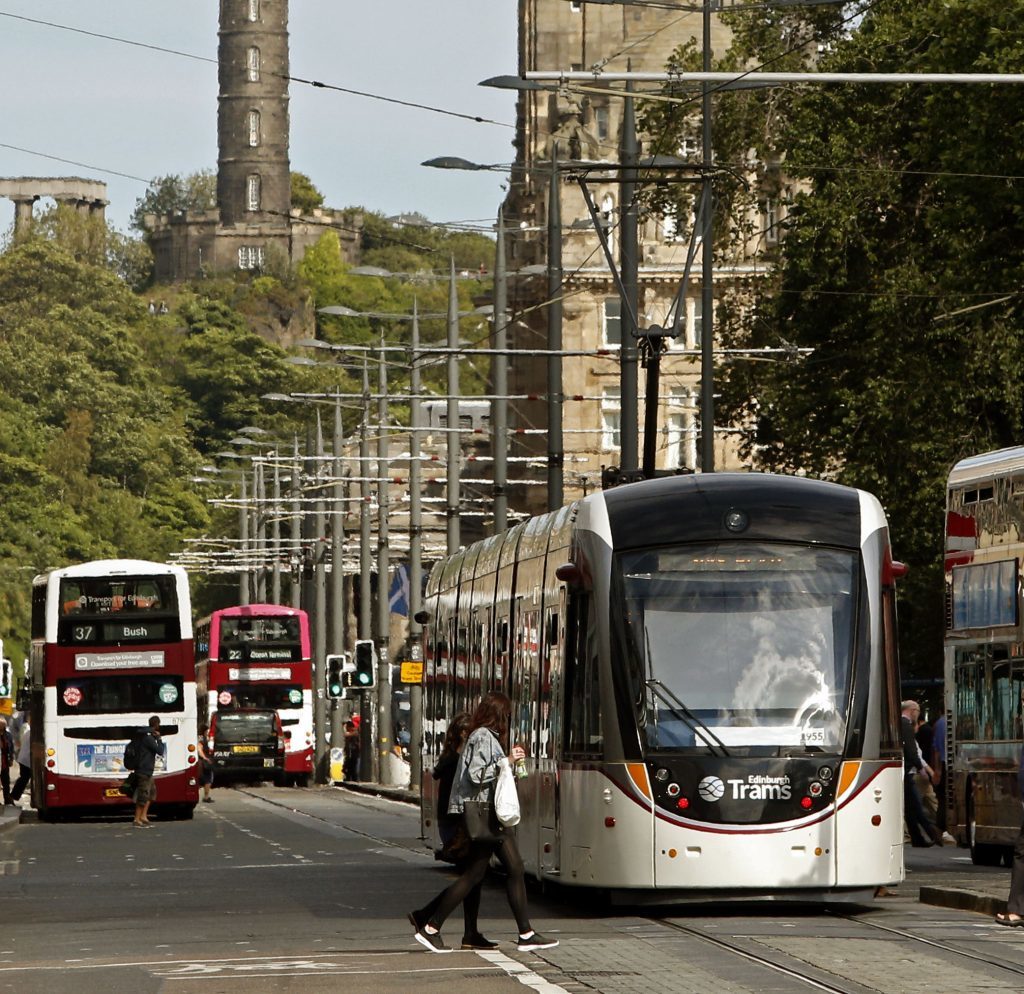
DEPUTY First Minister John Swinney has told an inquiry he would not change any of his decisions involving Edinburgh’s over-budget trams project if he had the chance.
Speaking at the Edinburgh Tram Inquiry, the then Finance Secretary said he was “satisfied” with his actions throughout the course of the scheme.
He admitted the decision to proceed with funding the project was made after a “frustrating” parliamentary vote to back it in 2007, because he did not want the minority SNP Government to be “curtailed by a trams project”.
The probe, chaired by retired judge Lord Hardie, is examining why the scheme went significantly over-budget and delivered years later than first planned.
Mr Swinney said: “I’m satisfied that the actions I took were appropriate for the office I had.
“There may have been minor transactional points which might have been done differently, there may have been issues which we could have expedited differently.”
Jonathan Lake QC, senior counsel to the inquiry, then questioned if he was “happy” with his his actions, to which the Deputy First Minister said he was.
The Scottish Parliament voted in June 2007 to pursue the trams project, despite the SNP minority government setting out its opposition to it.
Mr Swinney said the political landscape led his party to agree to deliver a £500 million grant.
He said: “We had been six weeks in office and it was clear we weren’t going to change parliament’s mind.
“We were concerned that there could have been some possibility the administration could have come under a challenge about staying in office.
“We didn’t want the first SNP government in 70 years to be curtailed by a trams project.”
The inquiry heard he asked Transport Scotland to “scale back” its involvement with the scheme to reduce the risk of the Scottish public purse being dipped into to fund it.
Mr Swinney said he was trying to clarify that responsibility lay with the City of Edinburgh Council, which was the “promoter” of the project.
He added: “I have been around long enough to know people can come back asking for more.”
The eventual £776 million bill was more than double the sum earmarked at the outset by a previous Labour-led administration.
Mr Swinney’s decision to make Tranport Scotland “scale back” from the scheme followed problems with construction of the Stirling-Alloa-Kincardine rail link.
He said: “What I was concerned about as there are too many cooks around the broth, which was what I was trying to resolve in the tram project.”
The inquiry heard how the relationship between contractors and the Edinburgh City Council came to a head in 2010, which resulted in Mr Swinney telling the local authority it had to go into mediation.
Although he said he could not “compel” it to do so, the council agreed to the move.
He added: “I thought the project was in a perilous position. Clearly it was not resulting in a sustained and focused delivery of the project.”
During this process, Mr Swinney held meetings with both the council and contractors which were never officially recorded.
The inquiry also heard how ministers announced in 2011 the remaining £72 million grant would be withheld, after the local authority decided the tramline’s length would be shortened to Haymarket.
Any future payments would have to involve Transport Scotland taking a “greater role in management of the project”, which Mr Lake described as a “180 degree”.
But Mr Swinney said it would be “practical assistance” and denied the body should have remained involved from the start, saying that was “speculation” about the effect it would have had on leadership roles.
The inquiry continues on Wednesday.

Enjoy the convenience of having The Sunday Post delivered as a digital ePaper straight to your smartphone, tablet or computer.
Subscribe for only £5.49 a month and enjoy all the benefits of the printed paper as a digital replica.
Subscribe